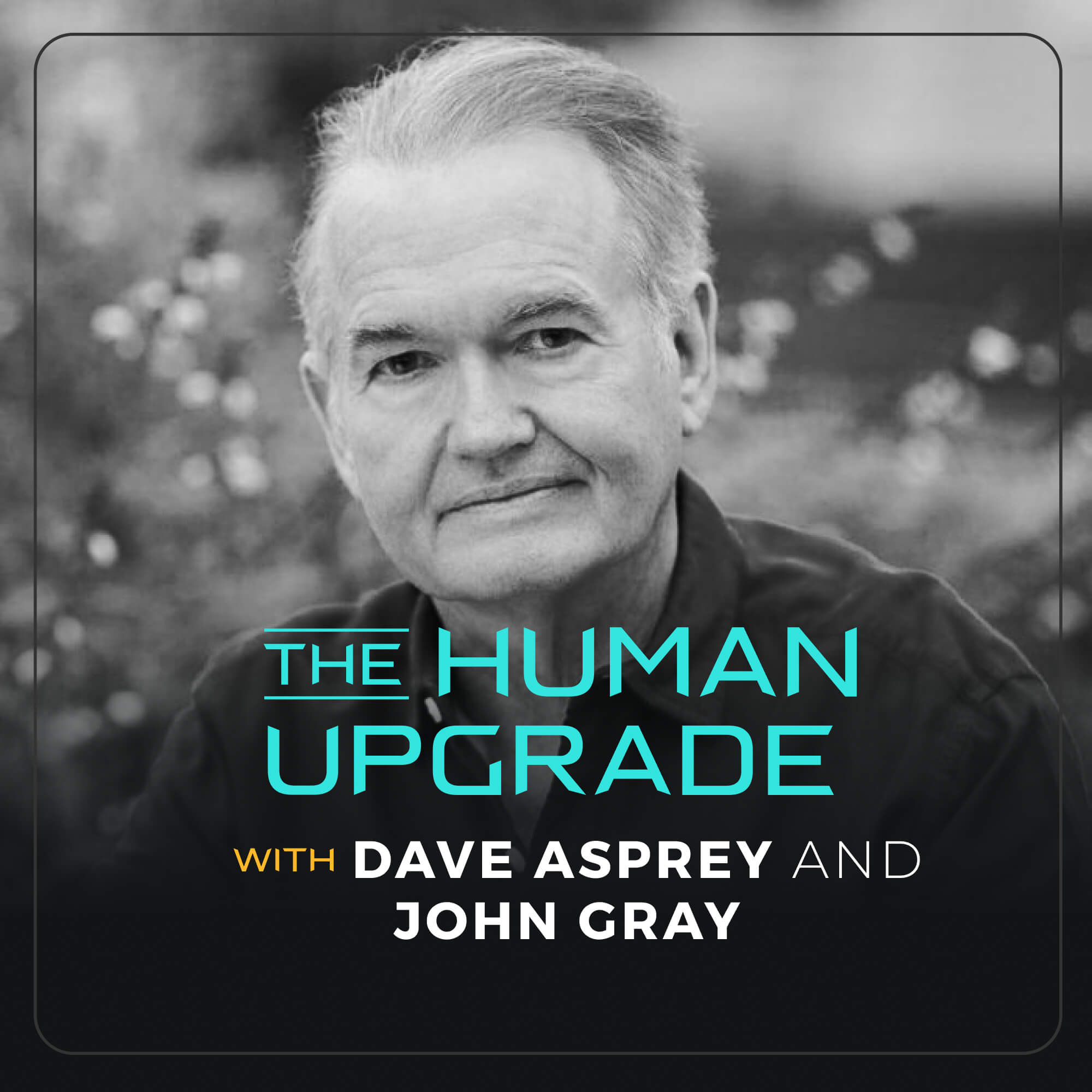In this Episode of The Human Upgrade™...
I’ve been eagerly looking forward to this conversation with a dear friend and a true luminary in the realm of relationships and personal development, John Gray. for quite some time. You probably recognize his name as the author of the famous book, Men Are From Mars, Women Are From Venus.
But what’s especially exciting is how John has evolved his insights to address the changing dynamics between men and women in the modern world, as he highlighted in his 2020 book, Beyond Mars and Venus: Relationship Skills for Today’s Complex World.
Now, why is this episode a must-listen? Well, John isn’t just a relationship expert; he’s also a seasoned biohacker who understands the profound impact of our environment – including relationships – on our hormones, happiness, and dopamine levels. In essence, he’s been biohacking before it even had a name. With decades of wisdom, he offers invaluable insights into navigating the complexities of male-female relationships in today’s world.
Delve into the fundamental differences between men and women, the importance of appreciation in relationships, what truly motivates men, and practical tips on boosting testosterone and managing emotions. We also explore how men and women process feelings differently, the art of setting boundaries, and the language of love as the language of hormones.
Get ready for a masterclass in understanding the dynamics of modern relationships and how to create lasting happiness.
“Don't look to your partner to be happy. Look to your partner to be happier.”
John Gray
00:59
Understanding Fundamental Differences Between Men & Women
- Read: Men Are From Mars, Women Are From Venus
- The most common relationship problems
- How testosterone interacts differently biologically with men and women
04:38
Do Men Exist To Make Women Happy?
- The importance of appreciation between men and women
- The difference between providing for and needing someone
06:32
Exploring What Drives & Motivates Men
- The ultimate manipulator to control a man
- How hormones and success intertwine
11:09
How to Boost Testosterone & Navigate Emotions
- Supplements that raise testosterone levels
- How negative emotions and gender differences trigger different hormones
- Why porn is not productive for men
- What boosts testosterone naturally?
19:14
Why Men Disconnect When Talking About Feelings
- How John regulates his testosterone through meditation
- The difference between how men and women deal with stress
30:22
How Men Can Help Women Come Back Into Balance
- What to do if you get triggered in a conversation
- How to have consideration for the other person and deescalate a situation
39:17
Setting Boundaries & Working on Your Relationship
- When you can work on a relationship or understanding it’s not a match
- How to stop a conversation when you need a pause
49:41
Advice for Women for How To Talk About Their Feelings With Their Partner
- Why complaining about one another doesn’t work
- Extreme effects of testosterone and estrogen on emotions
01:02:22
Why The Language of Love Is the Language of Hormones
- The language of love is the language of hormones
- Respect, acceptance, and safety as pillars of relationship happiness
01:05:48
What Women Need in a Relationship
- How depression manifests in women with a hormone imbalance
01:13:07
The Defense Against Attacks on Your Reputation
- The testosterone dopamine axis
- What happens when someone attacks your reputation
01:17:49
Techniques for Processing Emotions
01:25:32
Thoughts on Estrogen Receptor Degraders
01:31:48
What Masturbation Does to Men vs. Women
01:37:42
Advice for Couples Not Having Sex
Enjoy the show!
LISTEN:
“Follow” or “subscribe” to The Human Upgrade™ with Dave Asprey on your favorite podcast platform.
REVIEW:
Go to Apple Podcasts at daveasprey.com/apple and leave a (hopefully) 5-star rating and a creative review.
FEEDBACK:
Got a comment, idea or question for the podcast? Submit via this form!
SOCIAL:
Follow @thehumanupgradepodcast on Instagram and Facebook.
JOIN:
Learn directly from Dave Asprey alongside others in a membership group: ourupgradecollective.com.
Subscribe To The Human Upgrade
Similar Episodes

BOOKS
4X NEW YORK TIMES
BEST-SELLING SCIENCE AUTHOR
Smarter
Not Harder
Smarter Not Harder: The Biohacker’s Guide to Getting the Body and Mind You Want is about helping you to become the best version of yourself by embracing laziness while increasing your energy and optimizing your biology.








